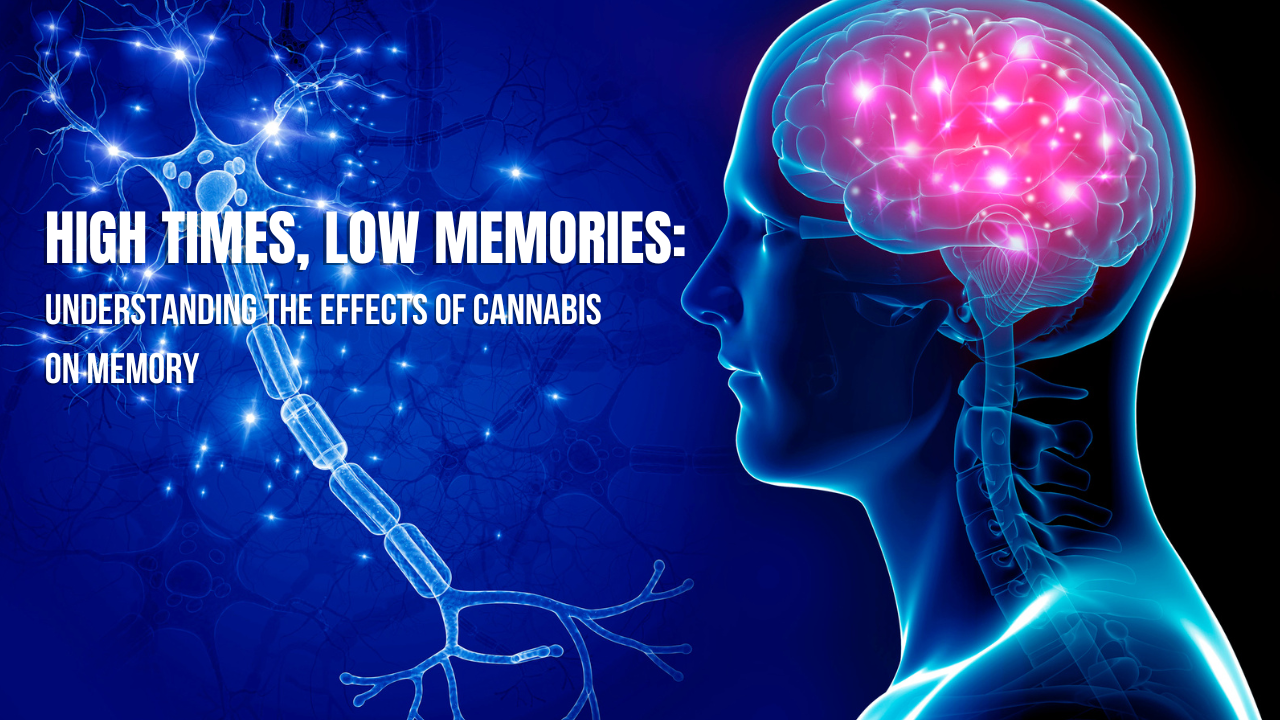Articles
High Times, Low Memories: Understanding the Effects of Cannabis on Memory
Introduction
Cannabis, also known as marijuana or weed, is a popular recreational substance that has gained widespread acceptance in recent years. As more states and countries legalize its use, it is crucial to understand the potential effects of cannabis on various aspects of health, including memory. This article aims to delve into the relationship between cannabis and memory, exploring both the short-term and long-term impacts, as well as the factors that influence these effects.
How Does Cannabis Affect Memory?
Cannabis affects memory through its interaction with the endocannabinoid system, which plays a vital role in regulating brain functions. The primary psychoactive compound in cannabis, tetrahydrocannabinol (THC), binds to cannabinoid receptors in the brain, leading to various cognitive changes.
Short-Term Effects
The immediate impact of cannabis on memory is often experienced as short-term memory impairment. While under the influence, individuals may struggle with tasks requiring working memory, such as remembering information for a brief period. This can manifest as forgetfulness or difficulty in multitasking.
The attention and concentration abilities of cannabis users are also affected, making it challenging to stay focused on tasks at hand. Moreover, encoding new information becomes more difficult, leading to potential gaps in memory recall.
Long-Term Effects
Concerns have been raised regarding the potential long-term effects of cannabis on memory. Some studies suggest that chronic, heavy cannabis use may lead to structural changes in the brain, particularly in the hippocampus, a region crucial for memory formation. These changes could potentially impact memory performance and increase the risk of developing memory disorders later in life.
Factors Influencing the Memory Effects
Several factors contribute to the variability of cannabis’s impact on memory among individuals. The ratio of THC to CBD (cannabidiol) in the consumed cannabis product plays a role, as CBD may have neuroprotective properties that counteract some of THC’s negative effects on memory.
Dosage and frequency of cannabis use also influence memory outcomes. Higher doses and more frequent use are generally associated with greater cognitive impairment. Additionally, individual variations in genetics, metabolism, and overall brain health can affect how an individual responds to cannabis.
Balancing Cannabis Use and Memory Health
While cannabis can have adverse effects on memory, responsible use and moderation can help mitigate potential risks. Understanding the individual’s tolerance and sensitivity to cannabis is essential in maintaining memory health. Strains with balanced THC to CBD ratios may be preferable for those concerned about memory effects.
Cognitive training exercises, such as memory games and puzzles, can be helpful in maintaining and improving memory function. Engaging in regular mental exercises and adopting memory-enhancing strategies, such as creating mnemonics or organizing information into meaningful patterns, can counteract the short-term memory impairment associated with cannabis use.
Conclusion
The relationship between cannabis and memory is complex and multifaceted. While cannabis can temporarily impair working memory, attention, and encoding of information, the long-term effects and potential risks on memory are still being explored. Factors such as THC to CBD ratios, dosage, frequency of use, and individual variations play a role in determining the extent of memory effects.
To maintain memory health while using cannabis, it is crucial to practice moderation, responsible use, and consider strains with balanced cannabinoid profiles. Additionally, engaging in cognitive training exercises and adopting memory-enhancing strategies can help mitigate the short-term memory impairment caused by cannabis use.
In conclusion, understanding the effects of cannabis on memory is essential for both recreational users and medical cannabis patients. By making informed choices and adopting healthy habits, individuals can strike a balance between enjoying the benefits of cannabis and maintaining optimal memory function.
FAQs
Q1. Is it safe to use cannabis if I’m concerned about my memory?
While cannabis can have temporary effects on memory, responsible use and moderation can help minimize potential risks. Choosing strains with balanced THC to CBD ratios and engaging in memory-enhancing strategies can also be beneficial.
Q2. Can cannabis use lead to permanent memory loss?
The long-term effects of cannabis on memory are still under investigation. While chronic, heavy cannabis use may increase the risk of memory disorders, the extent of permanent memory loss is yet to be fully understood.
Q3. Are there any strains of cannabis that are less likely to affect memory?
Strains with higher CBD content and lower THC levels are generally considered to have a lower impact on memory. It’s advisable to consult with knowledgeable professionals or budtenders who can guide you toward strains that align with your desired effects.
Q4. Can memory function be restored after cannabis use?
In most cases, the memory impairments caused by cannabis use are temporary and tend to resolve once the effects wear off. Engaging in cognitive exercises and adopting memory-enhancing strategies can aid in restoring memory function.
Q5. Are there any alternative remedies or supplements to counteract memory impairment from cannabis?
While research in this area is limited, some studies suggest that certain supplements like omega-3 fatty acids, ginkgo biloba, and curcumin may have potential benefits for memory. However, it is important to consult with a healthcare professional before incorporating any supplements into your routine.

